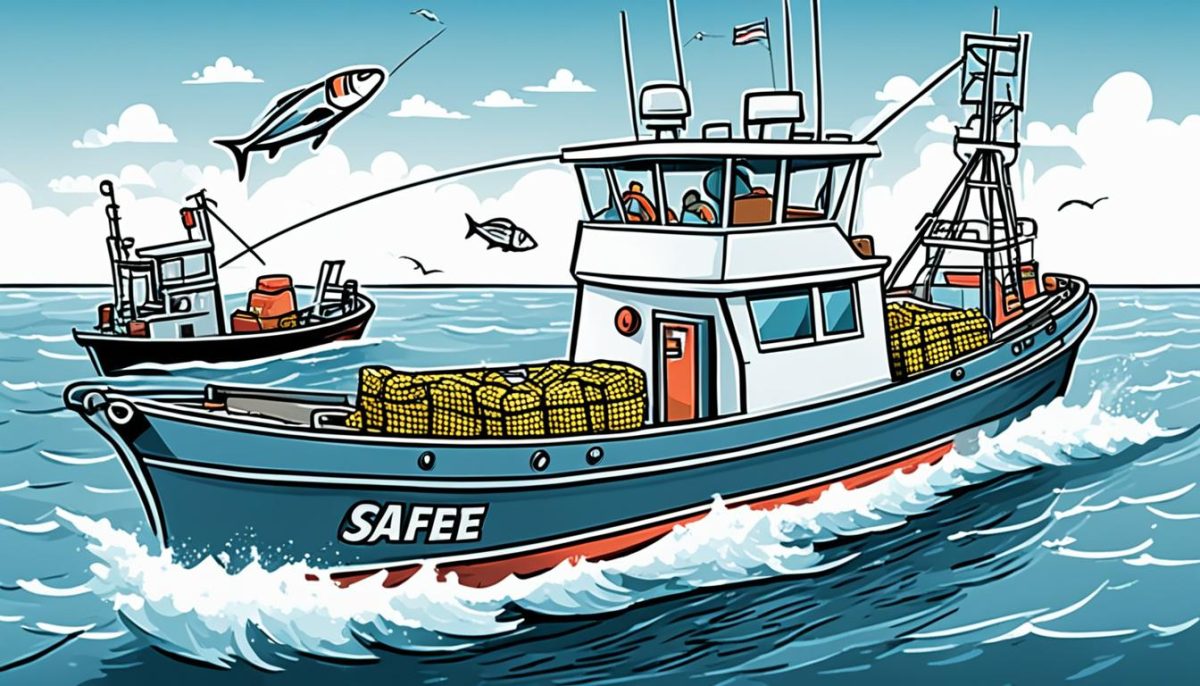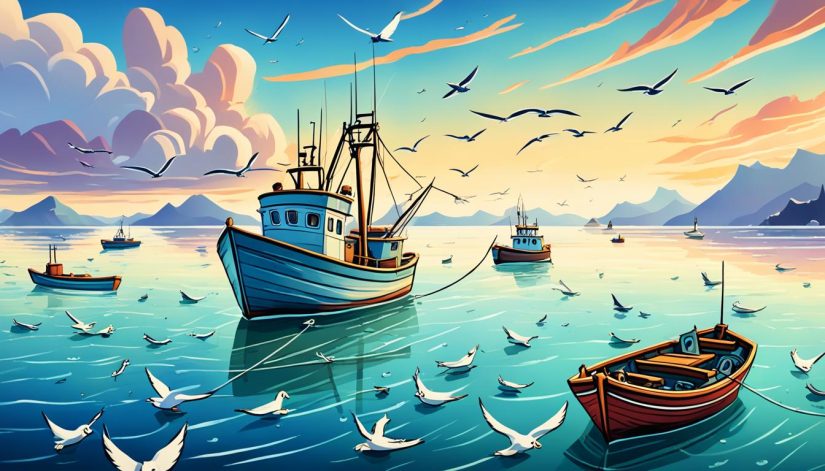Navigating the open waters can be a thrilling experience, but it also requires us to be mindful of our fellow boaters, including those operating fishing vessels. Knowing the proper etiquette and techniques for passing a fishing boat is crucial for ensuring everyone’s safety and enjoyment on the water. In this article, we’ll explore the best practices and regulations to keep in mind when passing a fishing boat.
As we venture out onto the water, we must remember that fishing boats are often engaged in their work, with anglers focused on the task at hand. Respecting their environment and minimizing any potential disruptions is key to maintaining a harmonious and safe boating experience for all.
Navigating the Open Waters: The Art of Passing Fishing Boats
As we venture out onto the open waters, one of the most crucial aspects of safe boating is understanding how to properly pass fishing boats. The maritime rules and regulations governing this maneuver are designed to protect both recreational boaters and the livelihoods of hardworking anglers. By familiarizing ourselves with these guidelines, we can ensure a smooth and respectful encounter on the water.
Understanding Maritime Rules and Regulations
The maritime authorities have established a set of rules and regulations that outline the proper protocol for passing fishing boats. These guidelines are in place to maintain order and minimize the risk of collisions or accidents. As responsible boaters, it is our duty to familiarize ourselves with these regulations and adhere to them diligently.
One of the key rules to remember is to maintain a safe distance from fishing boats. This not only allows us to be aware of the boat’s movements and activities but also demonstrates our respect for the anglers’ working environment. Adhering to these regulations not only promotes safety but also fosters a harmonious co-existence on the water.
Maintaining a Safe Distance: The Importance of Spatial Awareness
Maintaining a safe distance when passing fishing boats is crucial for several reasons. First and foremost, it allows us to maintain situational awareness on the water, enabling us to anticipate and respond to the fishing boat’s movements with agility. This, in turn, reduces the risk of collisions or accidents, ensuring the safety of both recreational boaters and commercial fishermen.
Furthermore, maintaining a safe distance demonstrates our respect for the anglers’ working environment. Fishing boats are often engaged in delicate and intricate maneuvers, and by giving them the necessary space, we acknowledge the importance of their work and the challenges they face on a daily basis.

“Respecting the maritime rules and regulations, as well as the spatial needs of fishing boats, is essential for safe and harmonious navigation on the open waters.”
By understanding the maritime rules and regulations, and maintaining a safe distance when passing fishing boats, we can navigate the open waters with confidence and consideration for all users. This approach not only promotes safety but also fosters a spirit of cooperation and mutual understanding among the diverse community of boaters and anglers.
Respecting the Working Environment of Anglers
As we navigate the open waters, it is crucial to be mindful of the working environment of anglers. Fishing boats are often engaged in the important task of catching fish, and we must strive to respect their activities and avoid disrupting their operations. This includes minimizing our wake and reducing noise pollution as we pass by, ensuring that we do not inadvertently interfere with the anglers’ ability to effectively fish.
Minimizing Wake and Noise Pollution
When passing fishing vessels, it is essential to maintain a safe distance and reduce our boat’s speed to minimize the impact of our wake. Large waves can disrupt the anglers’ lines and potentially damage their equipment, making it more challenging for them to carry out their work. Additionally, we should be conscious of our engine noise and avoid creating unnecessary disturbances that could startle the fish and hinder the anglers’ success.
By respecting the working environment of anglers and taking proactive measures to minimize our impact, we can ensure that everyone can safely and effectively enjoy the open waters. This considerate approach not only benefits the fishing community but also contributes to the overall harmony and sustainability of our shared maritime space.

